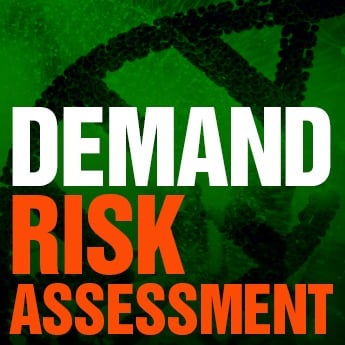May 2010: Canada has banned nanotechnology in organic food production. An amendment was added to Canada’s national organic rules banning nanotechnology as a “Prohibited Substance or Method.” The section lists substances or techniques that are prohibited in organic food production, including genetic engineering, synthetic pesticides, irradiation, and cloned animals, among others.
Nanotechnology refers to the manipulation of matter on the scale of the nanometer (one billionth of a meter). Nanoscale science operates in the realm of single atoms and molecules. At present, commercial nanotechnology involves materials science (i.e. researchers have been able to make materials that are stronger and more durable by taking advantage of property changes that occur when substances are reduced to nanoscale dimensions). In the future, as nanoscale molecular self-assembly becomes a commercial reality, nanotech will move into conventional manufacturing. While nanotechnology offers opportunities for society, it also involves profound social and environmental risks, not only because it is an enabling technology to the biotech industry, but also because it involves atomic manipulation and will make possible the fusing of the biological world and the mechanical. There is a critical need to evaluate the social implications of all nanotechnologies; in the meantime, CBAN Supporter ETC group believes that a moratorium should be placed on research involving molecular self-assembly and self-replication.
See ETC Group for reports and analysis
Broad International Coalition Issues Urgent Call for Strong Oversight of Nanotechnology, July 31, 2007
Over Forty Groups Release Fundamental Principles for Nanotech Oversight,
Citing Risks to the Public, Workers, and the Environment:
The coalition’s declaration outlines eight fundamental principles necessary for adequate and effective oversight and assessment of the emerging field of nanotechnology.
I. A Precautionary Foundation: Product manufacturers and distributors must bear the burden of proof to demonstrate the safety of their products: if no independent health and safety data review, then no market approval.
II. Mandatory Nano-specific Regulations: Nanomaterials should be classified as new substances and subject to nano-specific oversight. Voluntary initiatives are not sufficient.
III. Health and Safety of the Public and Workers: The prevention of exposure to nanomaterials that have not been proven safe must be undertaken to protect the public and workers.
IV. Environmental Protection: A full lifecycle analysis of environmental impacts must be completed prior to commercialization.
V. Transparency: All nano-products must be labeled and safety data made publicly available.
VI. Public Participation: There must be open, meaningful, and full public participation at every level.
VII. Inclusion of Broader Impacts: Nanotechnology’s wide-ranging effects, including ethical and social impacts, must be considered.
VIII. Manufacturer Liability: Nano-industries must be accountable for liabilities incurred from their products.





